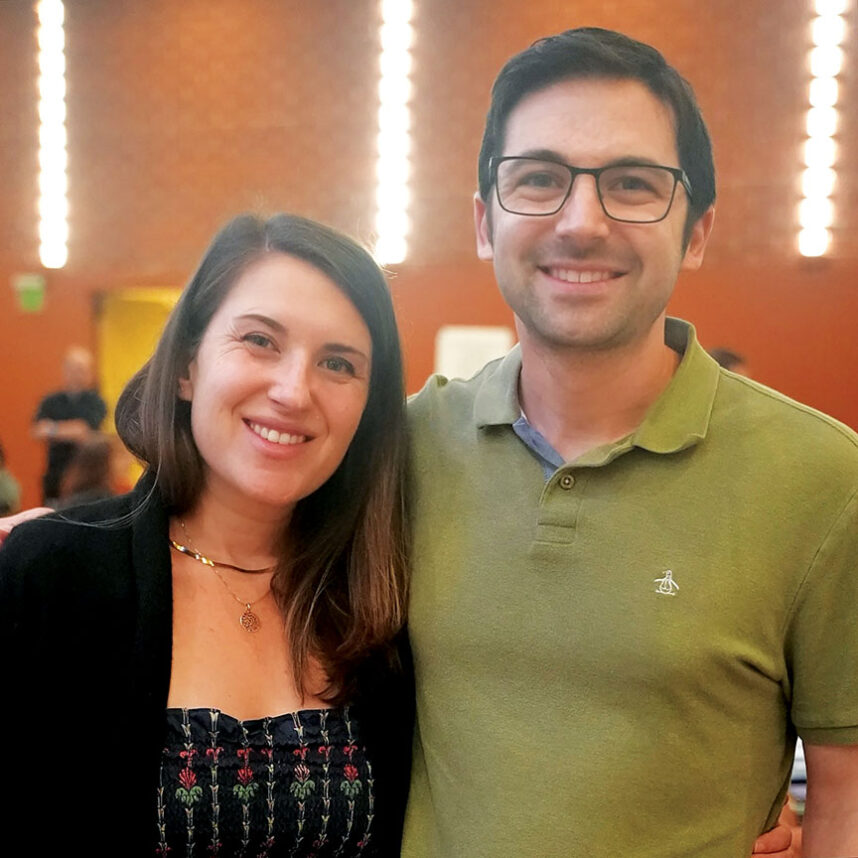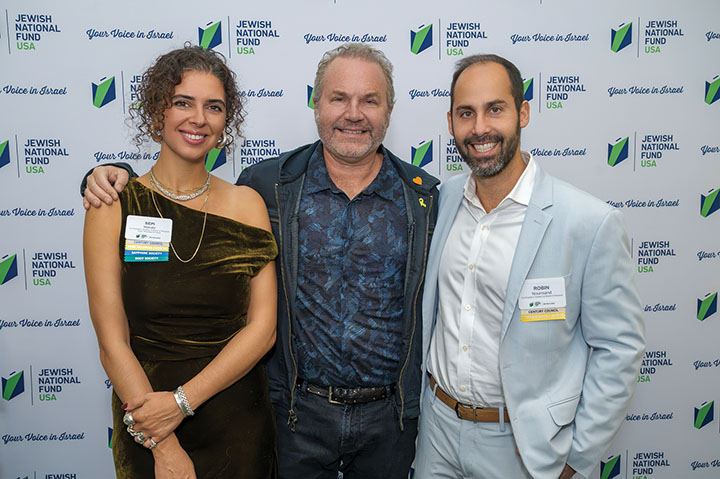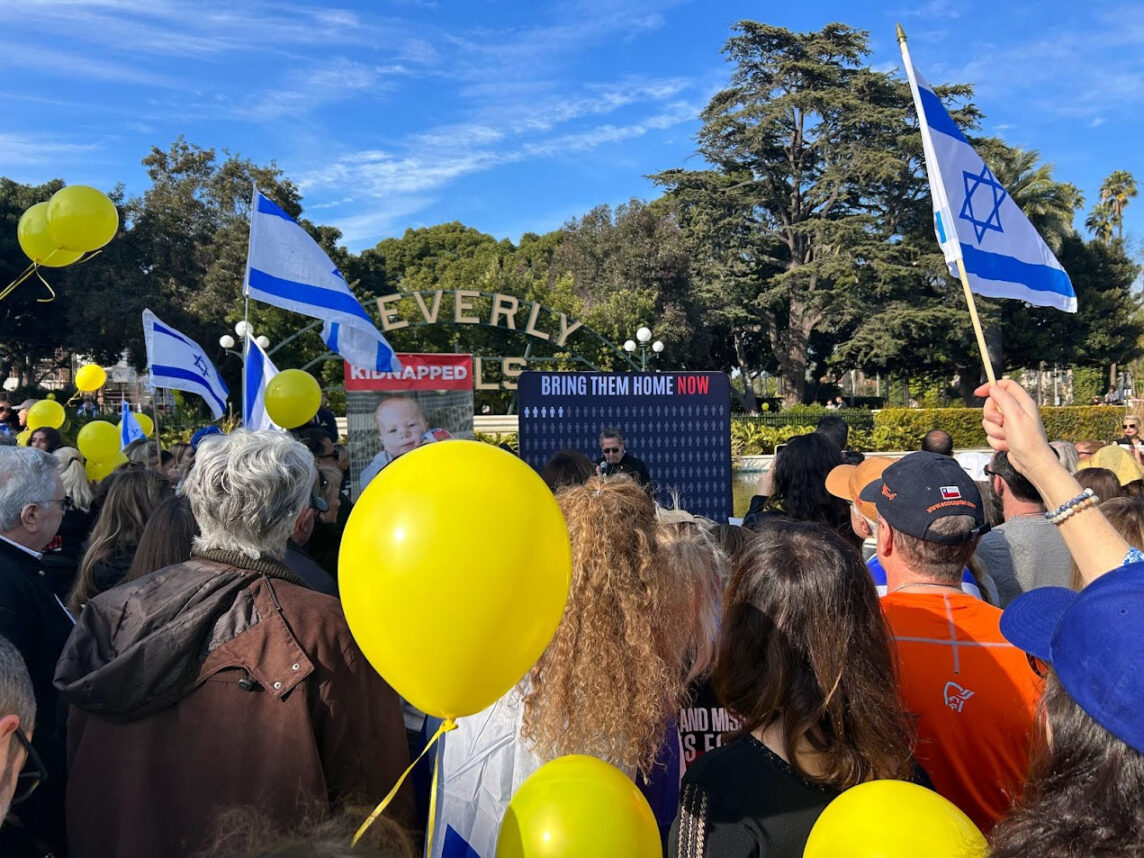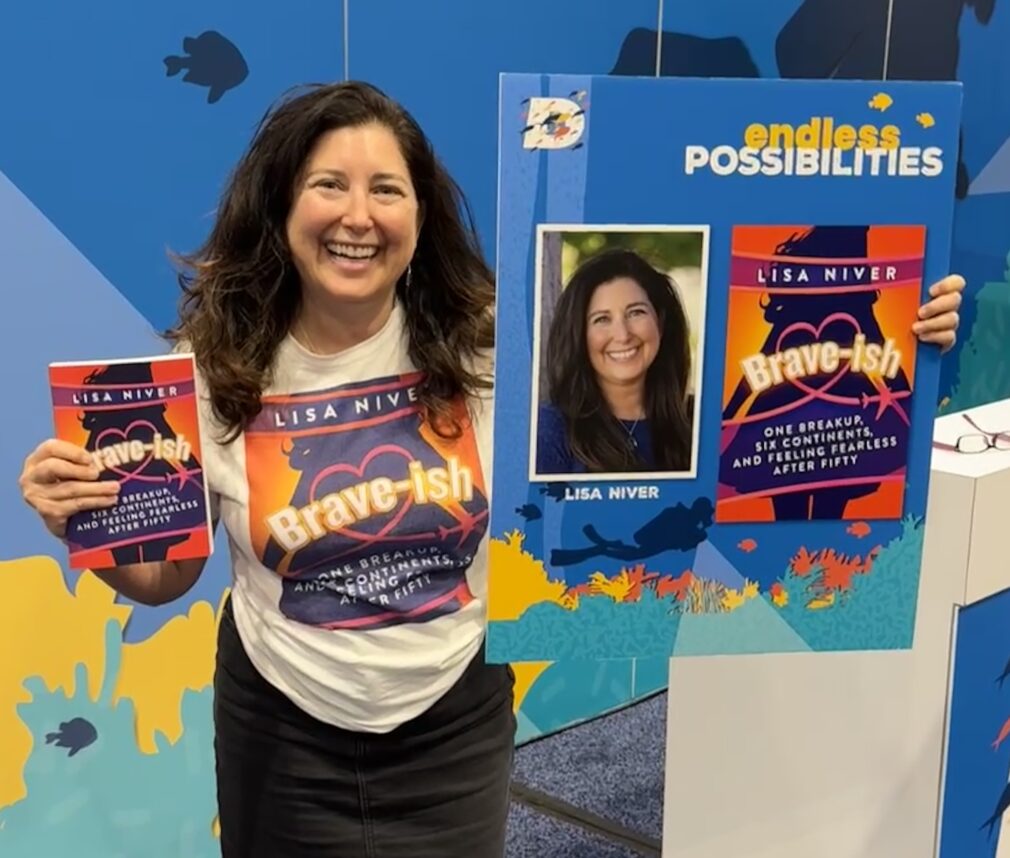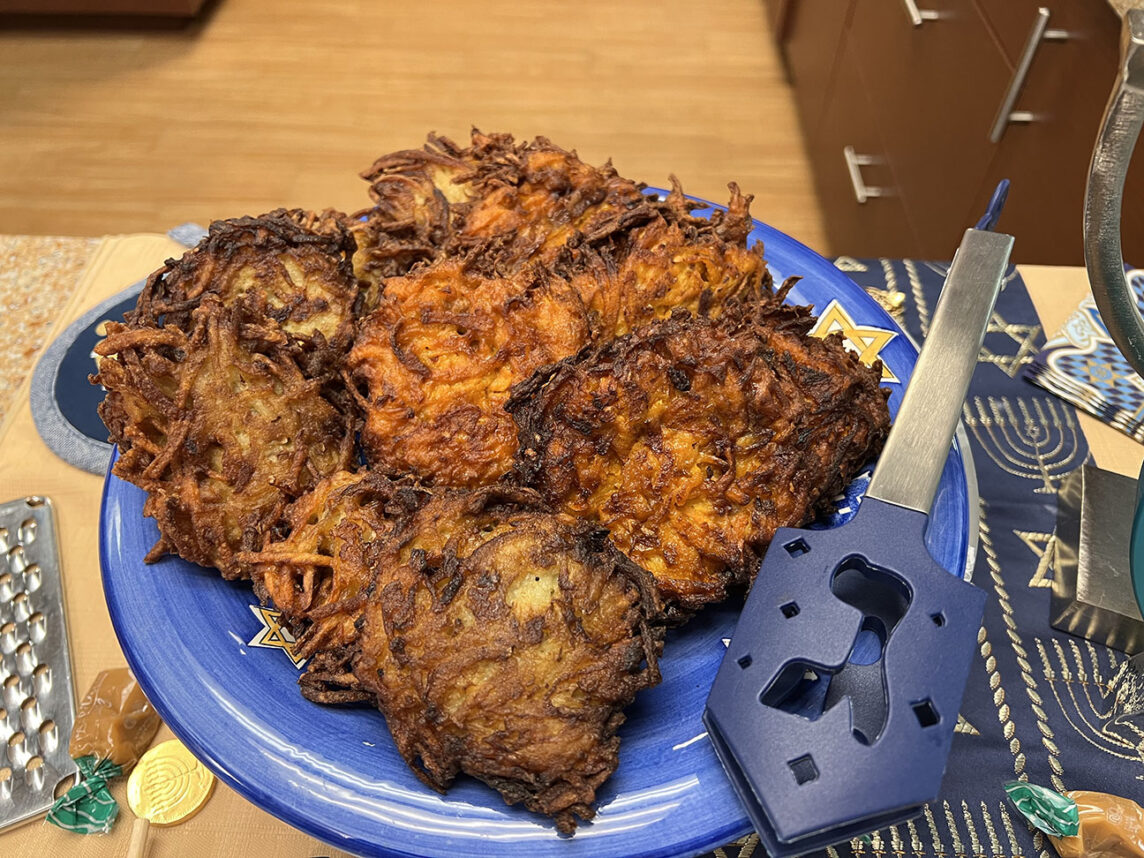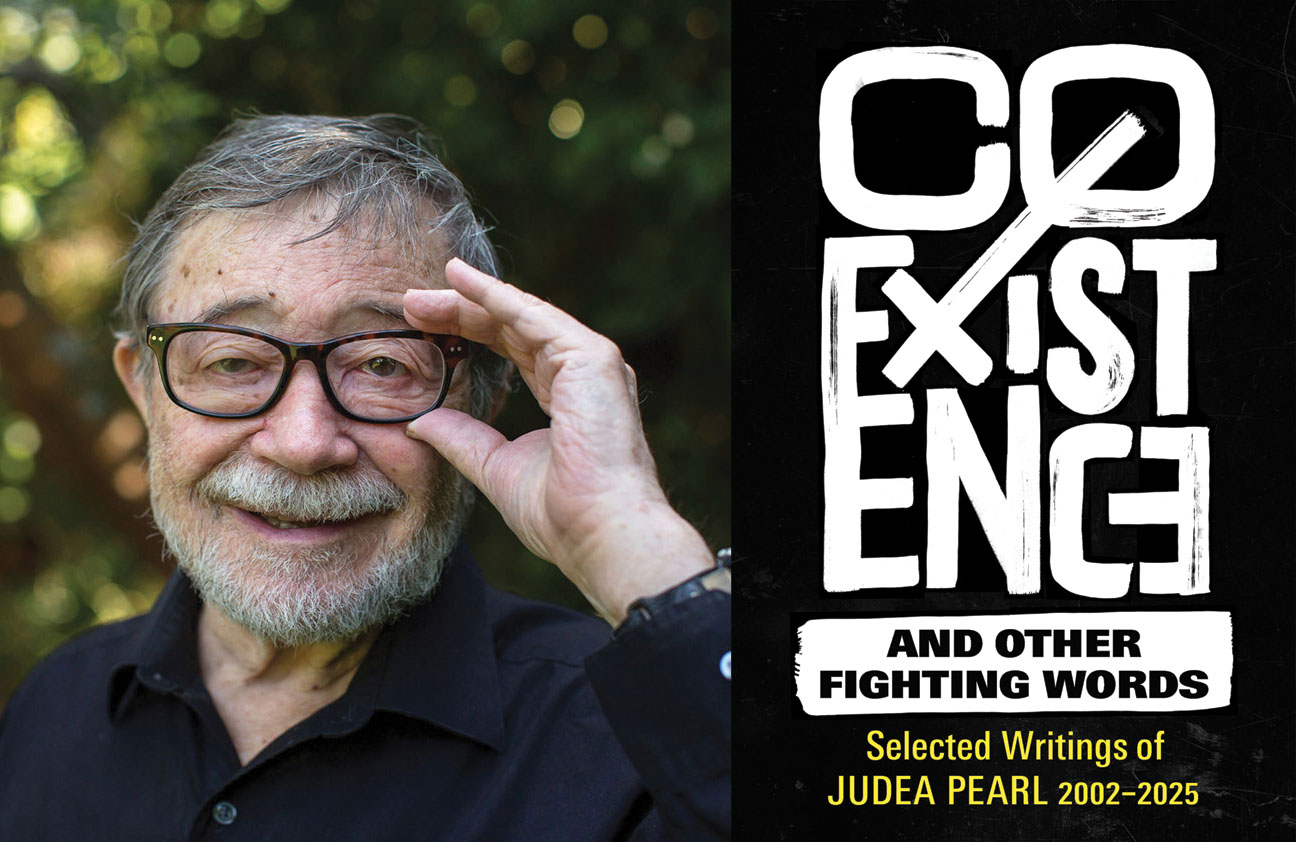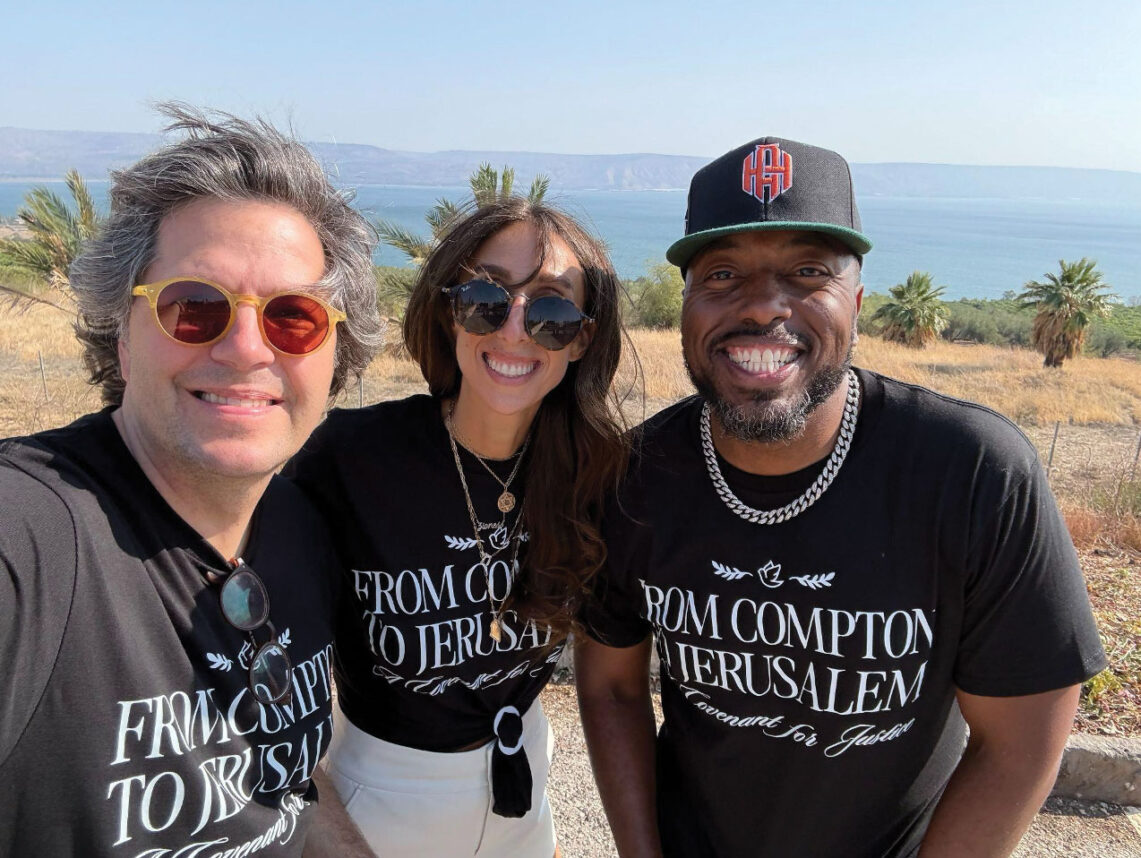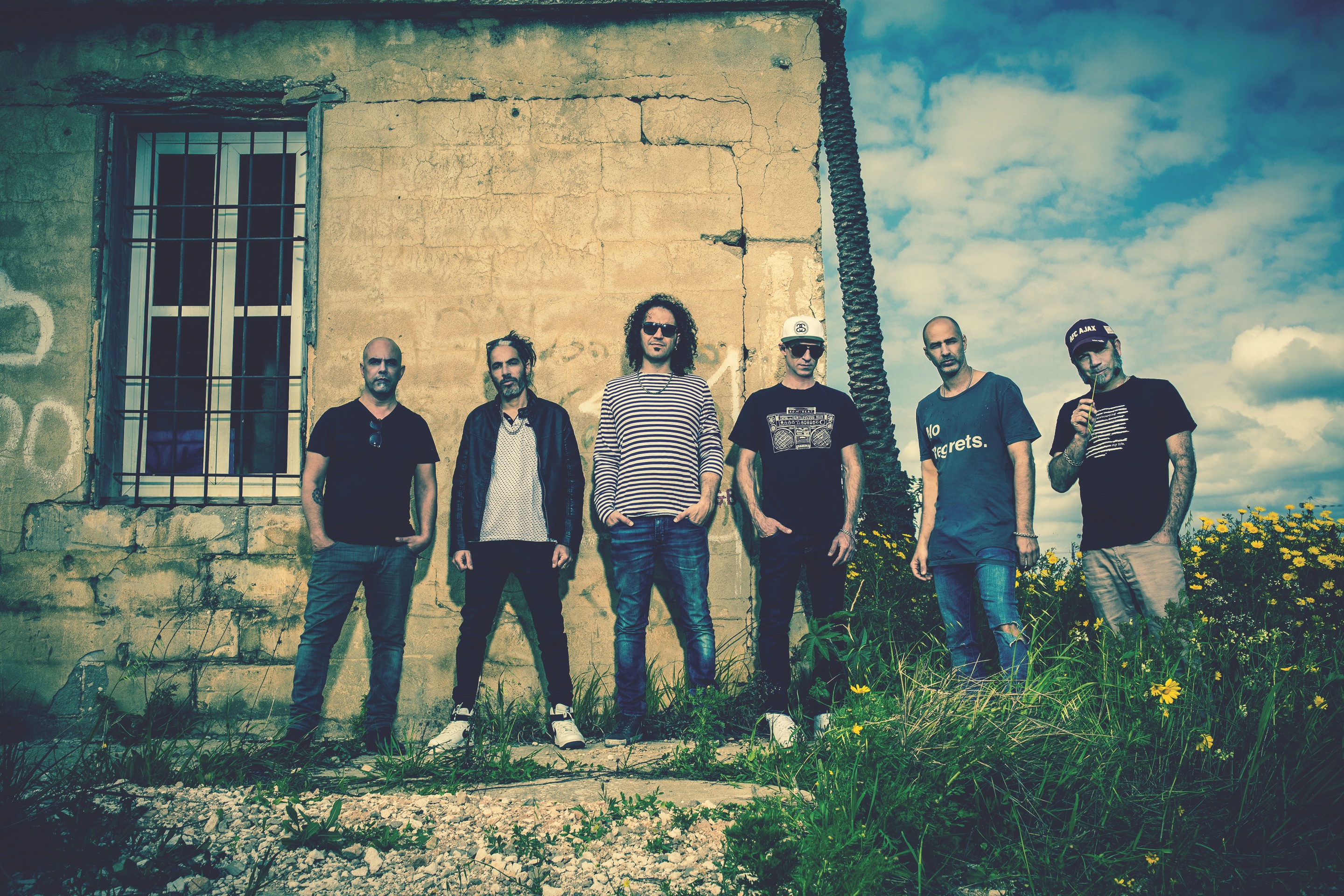
The latest single from the Israeli funk/hip-hop band Hadag Nahash, “Vote With Your Feet,” is a catchy pop song about the region’s thwarted peace process, with a chorus inspired by a quotation from American anarchist Emma Goldman: “If I can’t dance, it’s not my revolution.”
That line could be Hadag Nahash’s motto. The band burst onto the scene in the mid-1990s with a new sound in Israel: politically conscious lyrics rapped over electronic beats and a horn section, borrowing as much from the West as from the Arab world. The band’s dance floor-friendly sound made its members stars in Israel and earned them a following overseas.
They will perform Dec. 2 at American Jewish University’s (AJU’s) Gindi Auditorium, where they plan to play their hits and some new songs.
“Our goal is to move your body but also move your head,” lyricist and frontman Shaanan Streett said. “Both are equally important to us.”
The group’s name literally means “The Fish Snake,” but it’s also a play on “nahag hadash” or “new driver,” the phrase printed on a sign given to new drivers in Israel to display in their car.
One of the band’s hits, “Shirat Hasticker” (“The Sticker Song”), became a political anthem in Israel. Written by novelist David Grossman, the song takes its lyrics from bumper stickers with opposing religious and political messages, offering in their juxtaposition a whole picture of Israel’s painful divides.
“When we started I was 25, now I’m 46. So I’m not the same guy.” — Shaanan Streett
This year saw Hadag Nahash’s hit “Od Yihiye Tov” (“Things Will Get Better”), in which Streett references blockades, settlements, discrimination against minorities and the main political parties of Likud and Labor as hindrances to peace, but also includes an optimistic prediction: “Out of the strong comes forth sweetness and out of the mire will yet come forth poetry.”
Streett has had other creative outlets over the course of the band’s history. He co-founded the annual One Shekel music festival in 2001, which brings together Jewish and Arab musicians and charges concertgoers just a symbolic single shekel to attend.
“It doesn’t cover the cost but it’s a statement that everyone in this country deserves to be exposed to culture. It’s not relevant how much money they have in the bank,” he said.
Streett also co-wrote the 2013 film “The Wonders” with award-winning filmmaker Avi Nesher. The film focuses on a Jerusalem street artist and a mysterious rabbi who is being held captive in an abandoned apartment. The artist character works as a bartender, just as Streett did for years in Jerusalem. (Streett now owns a bar called “Casino de Paris” in Jerusalem’s Mahane Yehuda market).
Streett spoke to the Journal by phone as he drove from his home in Jerusalem to the band’s rehearsal space in Tel Aviv, where the other band members live. Streett said he couldn’t imagine moving his family to Tel Aviv, an expensive, predominantly Jewish city that can be insular. He said he prided himself on living with “one foot outside the bubble at all times” and preferred Jerusalem’s mix of cultures.
Streett’s sister, Tova Yael Streett, died from cancer at age 21 in 2005, after which he began to write one poem a month to deal with his pain and despair. The effort led him to record a solo concept album, “Tova: A Good Project,” on which each song is named for the month in which it was written. He also hosts an Israeli children’s television show on which well-known musicians perform and are interviewed by a panel of children.
Streett has three children who attend the Jewish-Arab bilingual Hand-in-Hand school in Jerusalem.
He said parenthood and getting older hadn’t changed the band’s approach to writing and performing.
“We’re all grown men now with families, but we still don’t believe in compromising our truths,” he said. “We’re going to sing it loud and true, and stay happy while calling out things.
“We still have weed songs and anti-establishment songs, and we still have profanity in our lyrics. That stuff doesn’t change because we have kids. But there is more of an understanding. When we started I was 25, now I’m 46. So I’m not the same guy.”
Opening for Hadag Nahash at AJU will be Hanan Ben Ari, a rising religious star in Israel who blends genres and delivers thoughtful messages about social issues. For example, in “Lama” (“Why”) he laments the rat race of modern life, asking in the chorus, “Why, why should we chase our own tails?”
“Lama” is the fifth single from his top-selling debut album, “Izun,” which was released with help from an online crowdfunding campaign that raised more than 100,000 shekels, setting a record on the Headstart site for the funding of an Israeli album.
Other singles include “Mimecha Ad Elay” (“From You to Myself”) and “Mother,” a soulful ballad about the 2005 forced expulsion by Israeli soldiers of Gush Katif settlers in the Gaza Strip. Both songs received heavy rotation on Israeli radio.
In his new song, “Wikipedia,” Ben Ari jokingly calls out all the stereotypes people have of religious people and others, in the hope that, as he sings, “We will stop with the prejudice and each one will have a chance to write his own story.”
In an interview, he said, “Before I open my mouth, they’ve already told my story. They’ve already decided who I am, what kind of music I make, who my crowd is, what I write about, etcetera.”
Ben Ari, 29, wears a yarmulke and hails from the Karnei Shomron settlement in the northwestern West Bank. He was married at 20 and has four children. His father is a synagogue cantor, and his uncle is former Knesset member Michael Ben-Ari, a co-founder of the far-right Otzma Leyisrael party.
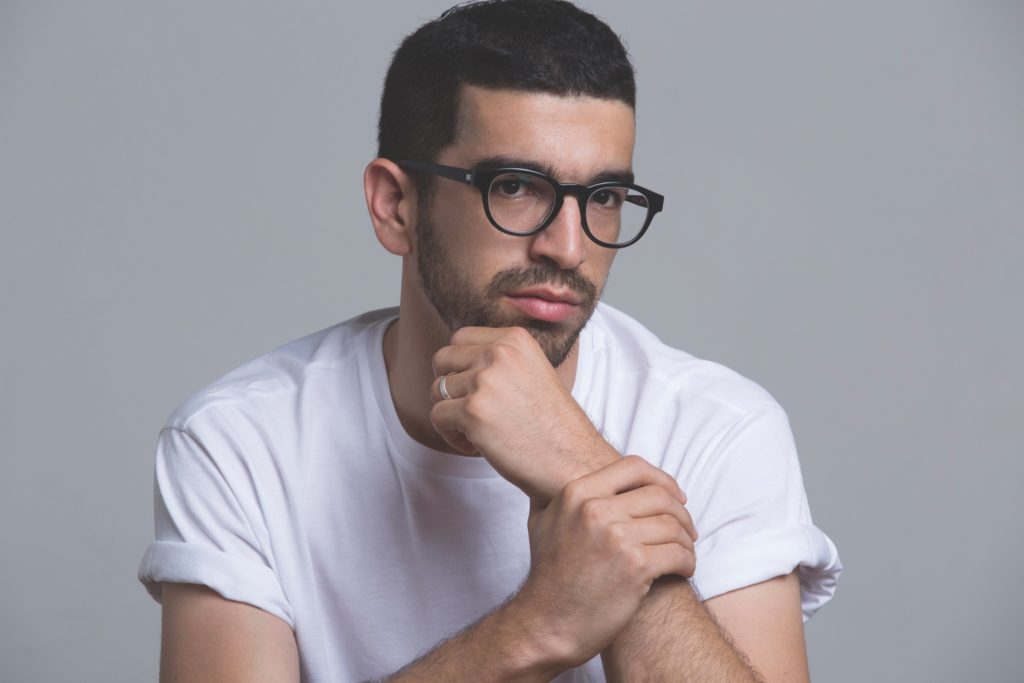
While he may have a different political perspective than Hadag Nahash, he said that performing alongside the band “was definitely one of my dreams.”
Ben Ari chooses to sing exclusively in Hebrew. “English is not a language that got me excited,” he said. “It hasn’t touched my soul like Hebrew does. And I’ve got a terrible accent. It could happen but not in the foreseeable future.”
Ben Ari recently performed at a memorial service for the 22nd anniversary of Prime Minister Yitzhak Rabin’s assassination.
“It was a big deal for me,” he said. “I was excited to be there. I decided to sing at the memorial because I’m sad from that situation that one man killed a prime minister just because he didn’t agree with [him]. And I think that [for] the Israeli nation, it was traumatic. Maybe now, 22 years after, we can heal ourselves and meet together and get to know each other from the start.”
Hadag Nahash will perform with Hanan Ben Ari at 8 p.m. Dec. 2 at American Jewish University’s Gindi Auditorium, 15600 Mulholland Drive, Los Angeles. Tickets are $45-$75 and can be purchased at teev.com.








